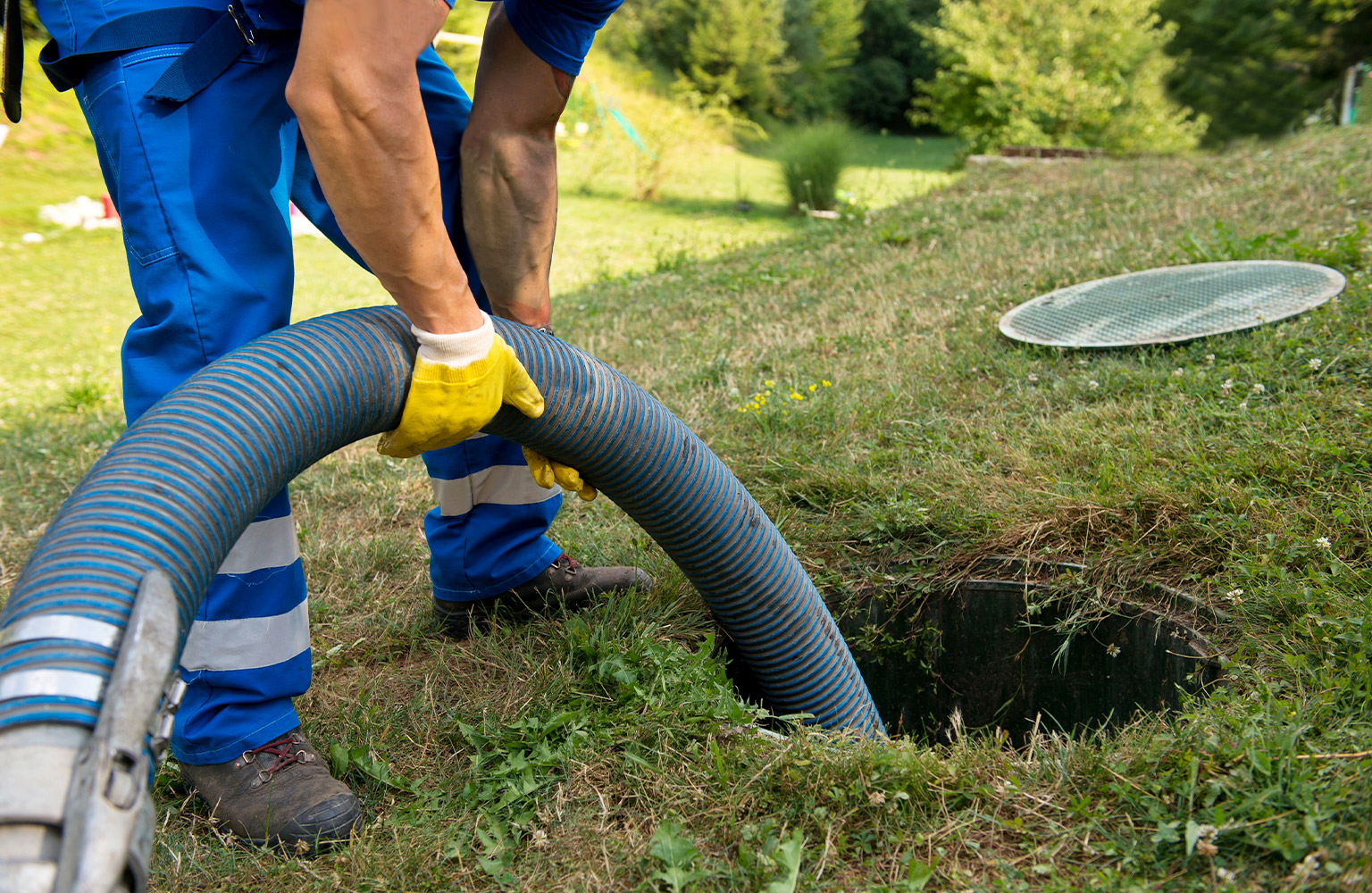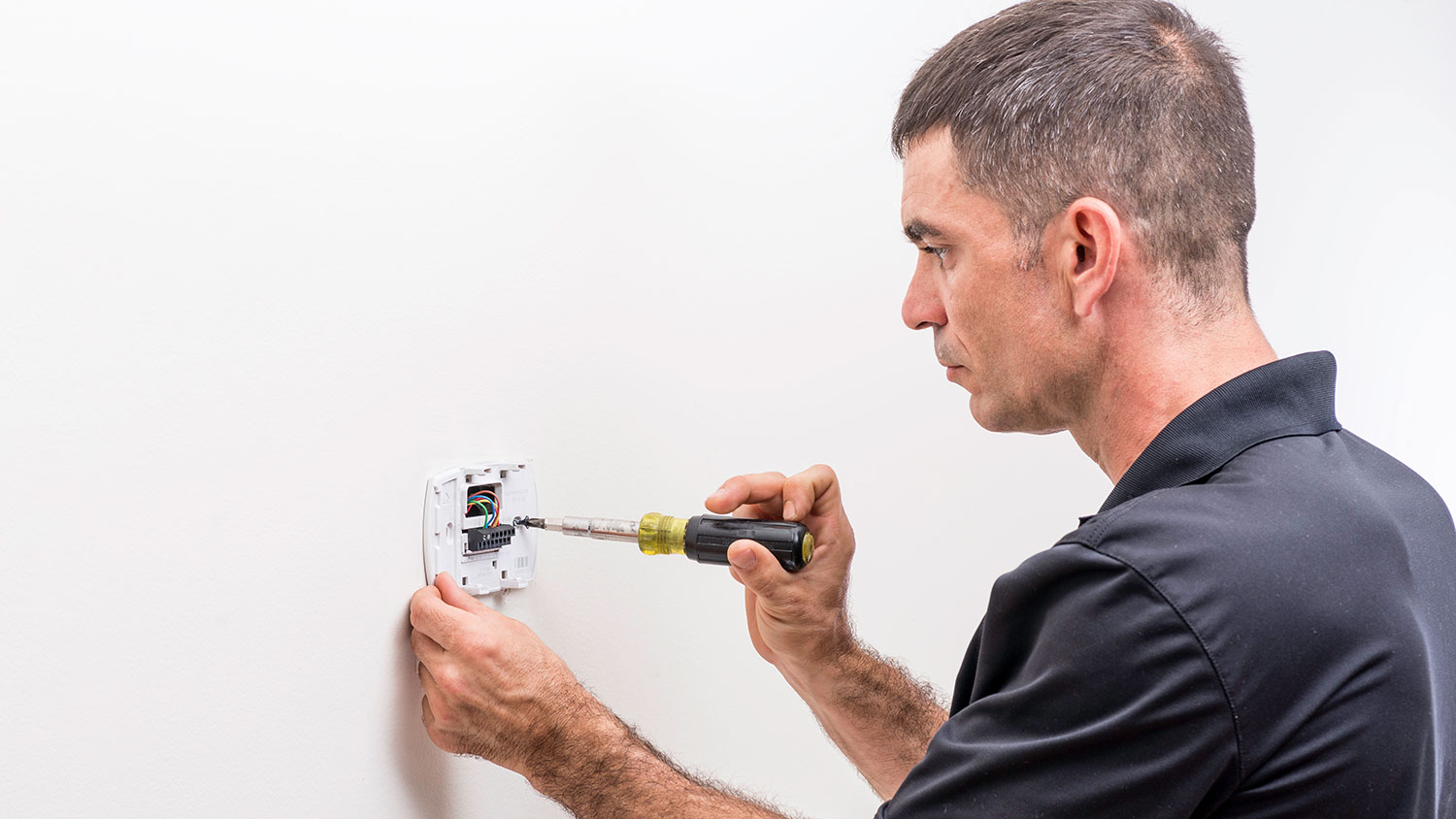
Discover how much you’ll pay for a Title 5 inspection based on the service type, labor fees, and post-inspection repair costs.
A septic pro or a plumber handles issues depending on where the problem starts


Know who to call for septic problems based on where the issue starts, inside plumbing versus the tank, drain field, or outdoor lines.
Costs change with tank material, size, repair type, and any local permit requirements that affect the job scope and timing.
Calling the right pro quickly prevents backups, limits health risks from sewage exposure, and reduces the chance of bigger system damage.
Save contacts for both a plumber and a licensed septic service, and schedule maintenance every three to five years.
Leave repairs to licensed pros to avoid safety hazards and potential legal issues, including restrictions on DIY septic work in some areas.
This article was created using automation technology and thoroughly fact-checked and edited by HomeAdvisor Editor Ryan Noonan.
When deciding who to call for septic problems, you will choose between a licensed septic service provider and a plumber. Save numbers for both. Septic pros are licensed for pumping and repairs. Plumbers may need special certification to work on septic tanks. DIY is unsafe and can be illegal in some municipalities. If you are unsure, start with a plumber for diagnosis.
When clogs or failures occur in the septic tank, drain field, or lines outside your home, a licensed septic professional is the right call. These specialists arrive with the tools and training to clear blockages on-site and restore safe function. They can perform clean-outs, hydro-jetting, and pump-outs, and advise on maintenance timing to prevent future issues.
Handles tank and drain field problems located outside your home’s walls and plumbing fixtures
Licensed to perform septic tank pumping and septic system repairs in most areas
Brings specialty equipment to locate, access, and clear tough blockages on-site efficiently
Experienced with all types of septic systems and their unique components and layouts
Uses high-pressure hydro-jetting when needed to remove stubborn drain line clogs
Prioritizes system safety and proper handling of sewage to protect your household
Identifies when a pump-out is necessary to restore capacity and flow
Addresses backups that affect two or more fixtures, pointing to tank or main line issues
Recommends routine maintenance every three to five years to avoid future backups
Hire a plumber when the issue is inside your home or limited to a single fixture. Plumbers snake drains, clear backups, and repair pipes leading to the septic tank. If your tank was emptied recently and only one drain is slow or backing up, call a plumber first. Some plumbers work on septic tanks but often need special certification.
Plumbers are the right choice for single-drain backups, especially on upper floors, which rarely relate to septic systems. Hissing pipes or a toilet that runs when not in use point to a plumber. Gurgling pipes indicate calling a septic professional. Other plumber-worthy issues include low water pressure, discolored tap water, and dripping faucets. If you are unsure, start with a plumber for diagnosis. If the problem seems complex or you want to ensure the issue is handled professionally, you might want to consider a local plumber to ensure the job is done safely and correctly.
Pros fix septic problems by locating the blockage and using targeted clearing methods. They start with a tank clean-out, move to hydro-jetting if needed, and pump the tank when required to restore capacity and flow.
Diagnose the blockage location in the tank, drain field, or connecting lines
Perform a routine clean-out of the septic tank to clear clogs and restore flow
Hydro-jet drain lines to remove stubborn buildup that resists standard clearing
Pump the septic tank when needed; the average pumping cost is around $400
Recheck flow and advise on maintenance timing to prevent future backups
Septic tank repair averages just under $1,900, with final costs driven by several factors. Pumping the tank averages about $400 and may be part of the fix. Repairs cost more for fiberglass and concrete tanks compared to plastic. Larger tanks over 1,000 gallons, repairs involving pumps or baffles, and strict local regulations or permits increase pricing. Per-hour rate data is not provided here. Urban areas may cost more due to permitting requirements.
From average costs to expert advice, get all the answers you need to get your job done.

Discover how much you’ll pay for a Title 5 inspection based on the service type, labor fees, and post-inspection repair costs.

Budget for septic tank repair costs based on factors including parts, materials, labor, ongoing maintenance costs, and more.

Prepare for septic tank installation by learning how much perc tests cost with our guide covering land size, test type, and local regulations.

Who installs sprinkler systems? Learn if irrigation companies or landscapers fit your job, what it costs, and how pros get it done

Who to call to replace a thermostat? Learn whether to hire a thermostat installer, HVAC pro, or electrician and see how pros handle the job

Who empties septic tanks and how often? Learn when to call septic pros, the pumping process, and average septic tank pumping cost.